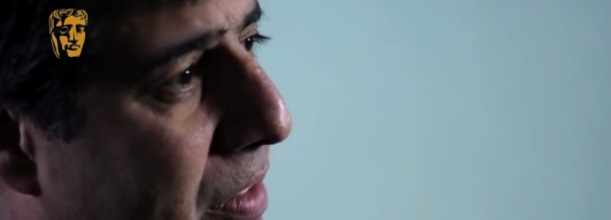BAFTA Guru presents screenwriting masterclasses

Now, when it comes to bashing out a script the Best For Film gang doesn’t have much to worry about. Tash is Doctor Who’s pet writer, Florrie’s plays are on actual BBC actual Radio 4, and Caroline and Tom conjured up The Better Man like it weren’t no thing. Plus Duncan writes like two thirds of Hunter Moore’s jokes. But our method (stare at the wall for three hours, ask questions on Twitter, drink) doesn’t work for everyone, so the gorgeous sylphs at BAFTA have produced the following videos – a no-nonsense guide to getting your first screenplay ready to send out, courtesy of some of the world’s most successful screenwriters.
We’re not going to dress these videos up with lots of commentary, beyond pulling out the occasional apposite quote, because David S. Goyer, Richard Curtis and co definitely know more about this stuff than we do.
“I’m writing, sketching all the time, and most of the sketching is dialogue, and the reason I’m sketching that way is that I want the characters to rise. I mean, the right characters have to… y’know, writers always talk about the characters taking over their story, taking over the film, and it really is true – you really need, they need, to come alive. The movie is about them.” – Tony Gilroy
“My main writing trick is that I just write an enormous amount; so if I’ve decided that someone has a sister and that sister’s going to be a key part of it, I will write twenty pages of him talking to his sister, and they will… the relationship between them, and the characters of them, will slowly emerge during the course of the day. And then I’ll read it back and think ‘Oh, there I came across something interesting – when I start tomorrow, that’ll be my starting point.'” – Richard Curtis
“You have to not be too hard on yourself when you’re writing that first draft. Sometimes, when I’m really disgusted with myself, I’ll write – literally, I will write ‘science gobbledegook’ in parentheses from this one actor, or ‘sad story about his childhood’, y’know, in parentheses, and then I’ll go back afterwards and fill it in.” – David S. Goyer
“If a story works, there’s no better feeling. And if it doesn’t work, I’ll generally know that in the outline stage – so, again, by the time I actually get to writing that’s very late in the process for me. If a screenplay were to take six months, my writing process would be three weeks.” – Peter Morgan
“In a practical sense, the most challenging thing is often keeping the many people involved happy and protecting the script. Your job is to protect it, and being both open to collaboration and protective is sometimes a delicate dance. But your job is to protect that story.” – Susannah Grant
“Each draft you write, obviously, it gets more and more… you do lose some enthusiasm, and impetus, or whatever. But what happens is when the film gets greenlit, and when actors come on, there’s a whole extra energy – and that’s something I’ve sort of always fed off – the excitement of something suddenly turning from what’s on the page to becoming real.” – Hossein Amini
We’re very grateful to BAFTA for letting us host these brilliant videos; hopefully they’ll help you propel your career to a point where you don’t have to slip your screenplay into the pocket of strangers on the tube who look like they might be agents. Plus, if you want a little more help you can check out the BAFTA Guru hub for a huge stockpile of information on making it into the creative industries. AND they’ve hired Stephen Fry to give out the awards again! We love those guys.





Recent Comments